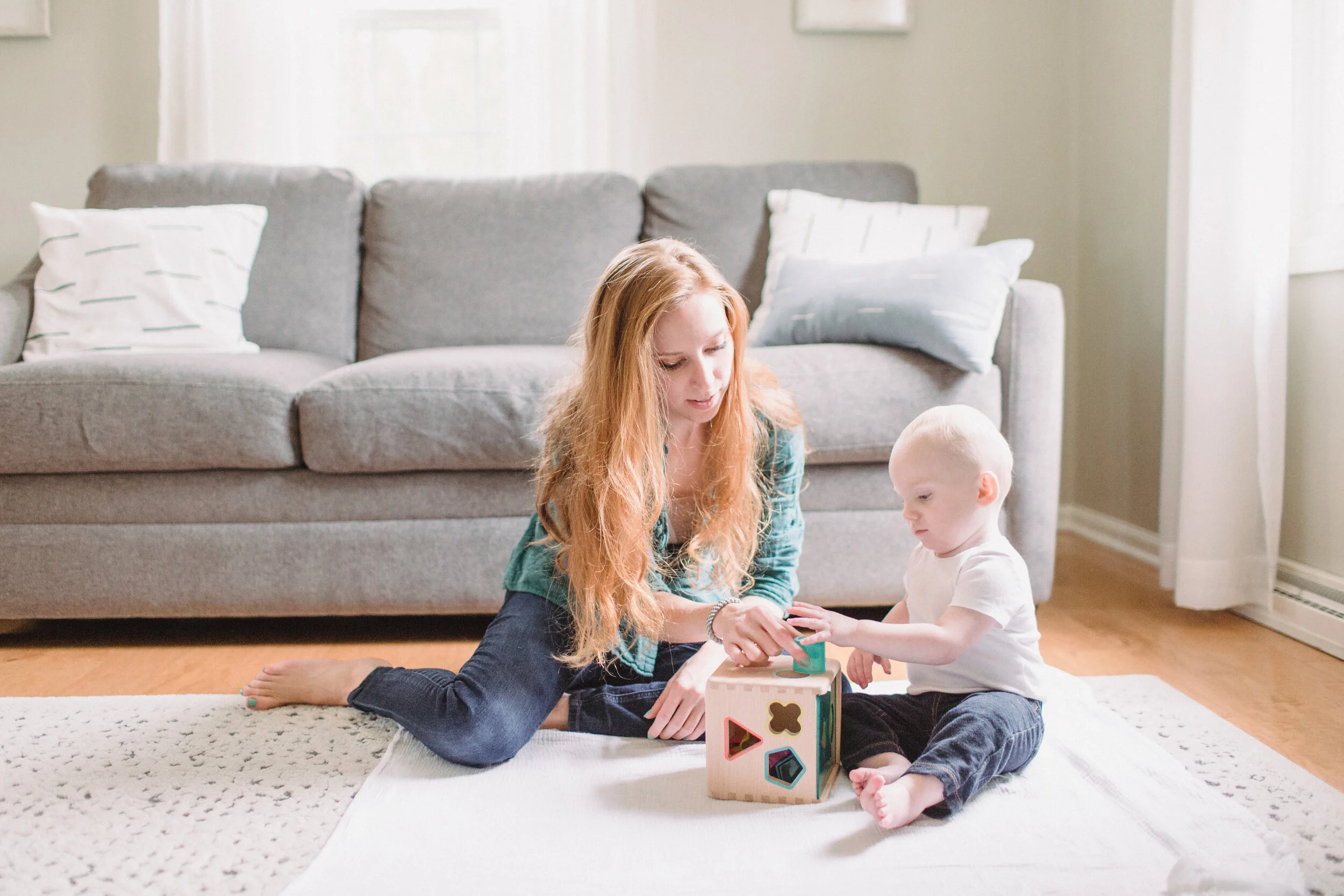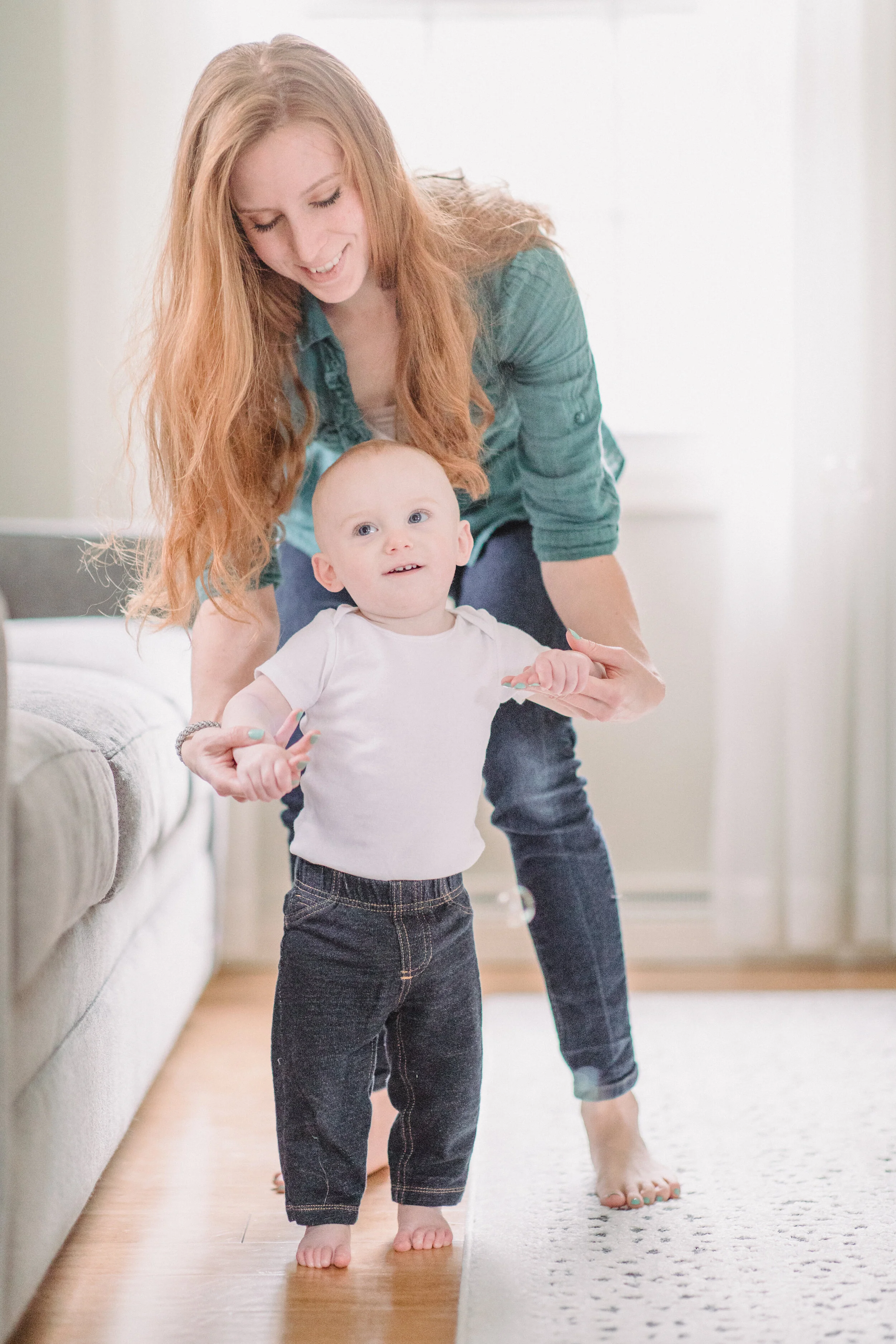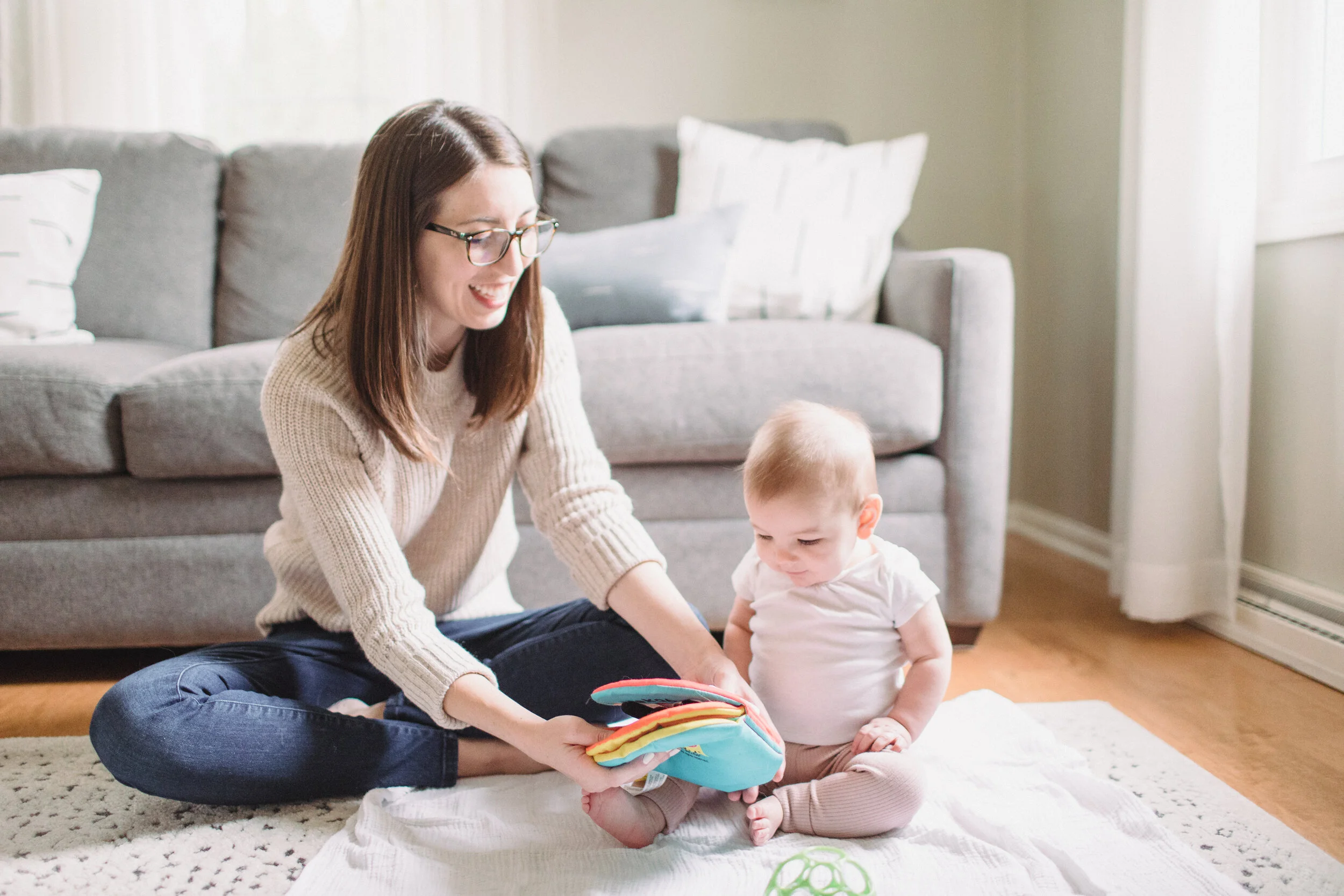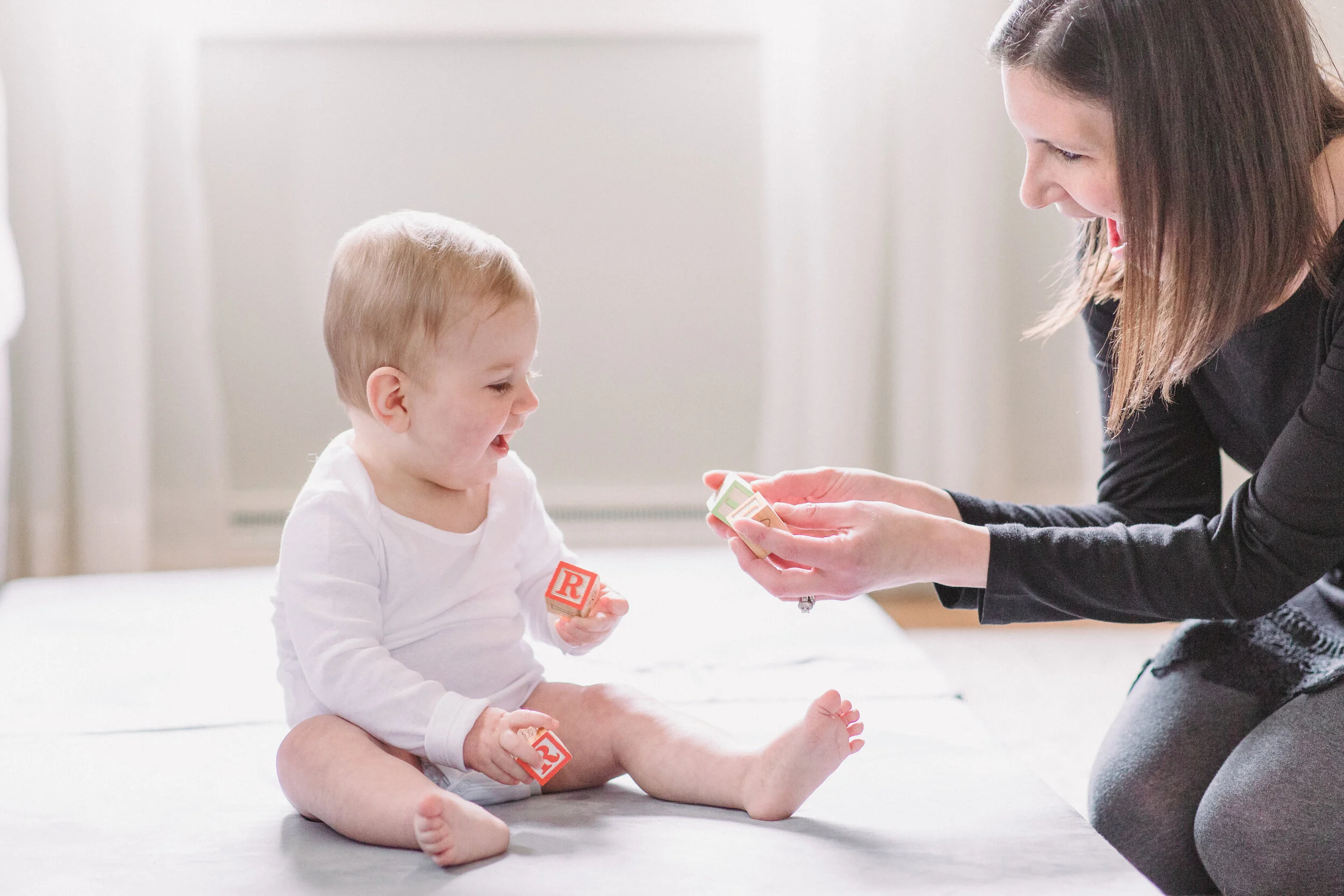New physical clinic space is opening in Snohomish, WA. Current clients will continue to be seen in their homes and may transition to the clinic space in early summer.
Bree is continuing to offer in-home, virtual, and online courses as the clinic gets up and running.
Book today!
Floor Play Ideas for Every Stage of Development
Parents often hear that tummy time is important for babies but research supports that floor play is actually very important for every stage of baby’s motor development. That’s why we’re passionate about our “The Floor Builds the Core™” concept which states that a baby gets stronger and masters motor skills by learning how to move in and out of positions while they’re on the floor.
More info here on the movement science behind our “The Floor Builds the Core™” framework.
Play to Prepare for Walking
Babies need to progress through motor skills to master them and then build on them. Strength and endurance are gained through play in preparatory positions like kneeling, squatting, cruising, or walking behind a push toy. Most parents are dying to celebrate first steps, but don’t rush it! Here are some fun and easy ways to play to strengthen baby for first steps.
How to Play with a Wobbly Sitting Baby
Did you know that sitting is only functional if you can do something there - like reach or watch something? Well, being placed in sitting but not being able to do anything, reach for anything, play, or get in and out of the position isn’t very functional for baby. And you know we’re all about functional play around here! Below you’ll find ways to play with your babe throughout the progression of learning to sit .
Reading with a Baby - Play Ideas for the First Year
Children who are read to regularly at home throughout early childhood will be exposed to exponentially more words than their peers who are not regularly read to. By the time they reach kindergarten, children will have heard 290,000 more words if read 1 book each day and 1.4 million more words if read 5 books each day (Logan, et al., 2019). Here you’ll find ideas on HOW TO read with a baby from birth through the first year.
Play Activities for Baby Hands
Did you know that hand skills are developed through crawling? It's true! Crawling develops the upper body and the arches of the hands which later helps with holding a fork, writing, tying shoes and lots more! Here, you’ll find simple play ideas to help develop baby hands from birth through the first year.
Baby's Hands - The Foundation to Dexterity
Keeping Baby Busy While Working From Home
How to Encourage Your Baby's Communication
Although you may jump right to thinking about baby’s first word when you think of communication development in the first year, there is so much that needs to develop in baby’s brain before we can expect to hear that first precious “mama” or “dada.” We use the term communication to encompass many aspects of speech and language development, including vocabulary (i.e., how many words a child says), articulation (i.e., how words are formed in the mouth), language expression (i.e., what a child says) and comprehension (i.e., what a child understands), gesture use (e.g., waving), and social skills (e.g., eye contact, turn-taking).
8 Tips for Enhancing Speech & Language Development
You’re likely already spending time each day talking, reading, and playing with your baby. Engaging and bonding with your baby with these three activities when you can throughout the day are likely all he/she will need to develop communication skills on time. But not all interactions are created equal when it comes to enhancing speech and language development. All children will develop at their own pace, but making a few small changes to how you talk to your baby can make a big impact on your child’s ability to both understand and use language when he/she is ready.
Tummy Time Activities for Babies 0-6 Months Old
The tummy time position is important because it helps baby to strengthen the neck, back, and shoulder muscles. This strength allows baby to pick up his/her head and look around at the world. It strengthens the back muscles (those that run down the sides of the spine) so that the trunk (body) can eventually support the head and neck when moved into an upright or sitting position. Tummy time is important for all babies starting at birth to six months and beyond.












